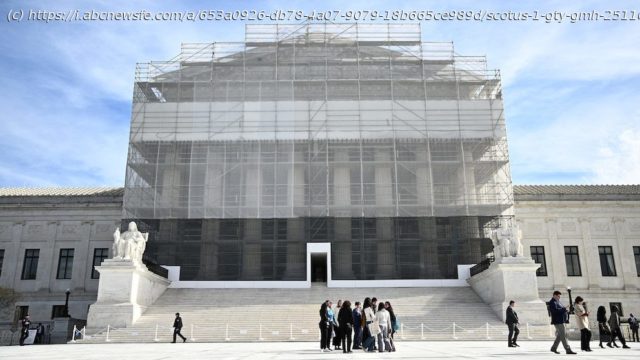The Supreme Court will decide whether President Trump’s sweeping global tariffs are legal in a case with major consequences for the global economy and presidential power.
The Supreme Court is hearing arguments Wednesday over the legality of President Donald Trump’s global tariffs program in a blockbuster case with extraordinary significance for American consumers and businesses, the nation’s financial health, global diplomacy, and future presidential power.
President Trump has called it « one of the most important cases in the history of our country. »
If the tariffs are invalidated, the U.S. government could owe tens of billions of dollars of refunds to businesses that have paid them. Such an outcome could also eliminate a primary bargaining chip that Trump has used in negotiations with other countries.
A decision upholding the tariffs would cement an expansive new exercise of presidential power and preserve a cornerstone of Trump’s agenda that economists estimate could boost some U.S. manufacturing in the long run but cost American families an average of more than $1,700 this year alone in higher prices.
Justices appear skeptical of Trump’s tariff authority
The Constitution gives Congress the exclusive authority to levy taxes on citizens and duties on imports, with a few limited exceptions adopted over the years to give the president some discretion during times of national crisis.
The key question in the Trump case is whether the 1977 International Emergency Economic Powers Act gives a president unfettered ability to set tariffs for any country, at any level, for as long as needed, whenever an emergency is declared at the president’s sole discretion.
Trump is the first president to try use the IEEPA to set tariffs without Congress, and the justices pushed Solicitor General John Sauer to justify the sweeping authority.
Sauer argued the tariffs are « regulatory » in nature, and that any revenue raised is incidental. That, despite Trump often boasting the billions of dollars he says the administration has raked in as a result of the levies.
« We don’t contend that what’s being exercised here is the power to tax, it’s the power to regulate foreign commerce. These are regulatory tariffs, they are not revenue-raising tariffs. The fact that the raise revenue is only incidental », Sauer said.
Sauer then faced a barrage of questions from the justices, including several conservatives, who appeared skeptical of Trump’s tariff authority under IEEPA.
“The vehicle is the imposition of taxes on Americans. That has always been the core power of Congress,” Chief Justice John Roberts, considered a key vote in the case, said at one point.
In a notable exchange, Justice Neil Gorsuch expressed a concern that the Trump administration is taking too much authority from Congress under its interpretation of the law. At one point, he suggested the Trump administration’s view contributes to a “a one-way ratchet toward the gradual but continual accretion of power in the executive branch and away from the people’s elected representatives” in Congress.
Home
United States
USA — Cinema Supreme Court hears Trump tariffs case, key justices appear skeptical of president's...






